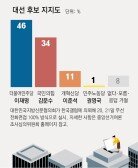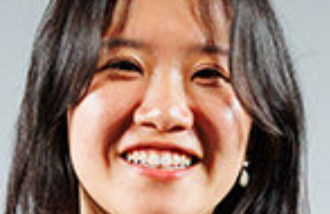Who Uses 10 Year-old Lecture Notes?
Who Uses 10 Year-old Lecture Notes?
Posted May. 17, 2001 09:28,
``Monday, Tuesday, Wednesday, Thursday, Friday, Saturday….``
There are no Sundays on the calendar of Jong-Wha Lee, a professor at the Division of Mechanical and Industrial Engineering in Ajou University, Suwon, Kyungkido.
It was long time ago for him to rest on weekends because of the preparation for lectures and dissertations.
When he arrives at his room at 9:30 in the morning, he turns on his computer. Then there are about ten e-mails sent by his students. Those questions are not simple ones like those he gets during the class. He has to spend about an hour to answer those questions.
Preparation for lectures costs Lee a much greater deal of labor. He tried a cyber lecture last year for the automotive engineering class after spending 6 months making colorful photographs and charts. He also recorded the contents of the lectures to explain about automobile design and engines more easily.
Answering questions from graduate students who are preparing their dissertations, he tries to write his own articles to put on domestic and international magazines. To him, it is common to work pass midnight.
There was a saying ``To be a professor means to have an `iron bowl` for lifetime. Yet, this saying no longer exists. We are living in a era of `unlimited competition` in which we have to make our every possible effort.``
Professors Are Evaluated: The saying of ``If one becomes a professor, it is a permanent position`` is no more effective. The atmosphere of the professors’ society in which a lifetime employment was guaranteed regardless of their quality of lectures or achievement is changing. Since the IMF’ supervision began, ``the professor’s achievement evaluation system`` and ``the annual salary system`` have been introduced with a logic of ``there is no exception even in the ivory-tower.``
According to Ministry of Education and Human Resources, by the end of last year, 37 (20.4 %) out of 181 private universities adopted ``the annual salary system`` and 141 universities (81.7 %) introduced ``the professor’s achievement evaluation system.``
Most universities evaluate professors’ outcomes in the field of ``education``, ``study``, and ``service.`` The results are applied as deciding factors for the performance rating (119 schools), research funds (50 schools), and the piecework system (59 schools). Forty four schools use the result as a standard to give a professor a sabbatical year. Professors wait for these evaluations with an anxious state of mind.
A representative at Ajou University said that they used to send the reports to professors’ home but they no longer do this. Instead, they send them to offices because many professors complained saying that ``their wives and children were disappointed seeing the reports.`` ``There can be a difference of 15 million won in annual salary depending on their evaluations.`` he added.
There is no more ten year-old lecture notes: Jae-Wan Park, a professor at the deartment of public administration in Sungkyunkwan University said ``There are few professors who use a same lecture note for ten or twenty years because they post their lecture notes on the department’s homepages or send them to students through e-mail in advance.`` He added that sharing lecture notes helps the lecture schedule to proceed twice as fast and thus it saves time.
The stories of professors who had put same questions on exams until their retirement by changing the form of questions from, for example, ``What is marketing?`` to ``What on earth is the marketing``? or ``What is marketing after all?`` are already became a legend.
There are professors who even use up-to-date high-tech media. Ho-Sang Kang, a professor at Sogang University’s School of Management, said, ``The amount of business has increased two or three times after I made my personal homepage because I have to spend a lot of time answering questions from students on the web-page.``
Professor Seun-Yup Kwak of the Division of Material Engineering in Seoul National University is using the powerpoint program during his lectures in which the motion-picture animation was included. He spent his whole last winter vacation to prepare. Jae-Pil Kim, a professor in the same department is trying to correct his strong Pusan dialect and his fast manner of speaking after he reviewed his recorded lectures.
Evaluation needs more prudence: Sungkyunkwan University that began to award best professor prizes from year of 1998 to each division’s most excellent professors who earn the best evaluation grades does not reveal the recipients’ list in public. The reason is that those professors who were not on the list were making objections saying that they could not accept the evaluation results.
Seoul National University’s professor Gap-Su Choi (Western History Department), the president of the Professors’ Labor Union, also pointed out saying ``There not only exists a problem to decide a standard for fair evaluation, but also the system can be used as a tool to drive out those who are not favored.``
Hyun-Chung Lee, the president of Korean Council for University Education said ``Considering the peculiarity of the scholarship, it is very important to create a fair evaluation standard with which everybody can consent.``
Lee Jin-Yeong ecolee@donga.com





![“천천히 달려도, 빨리 걸어도 질병 예방 효과는 비슷”[베스트 닥터의 베스트 건강법]](https://dimg.donga.com/c/138/175/90/1/wps/NEWS/IMAGE/2025/05/24/131670894.5.jpg)

